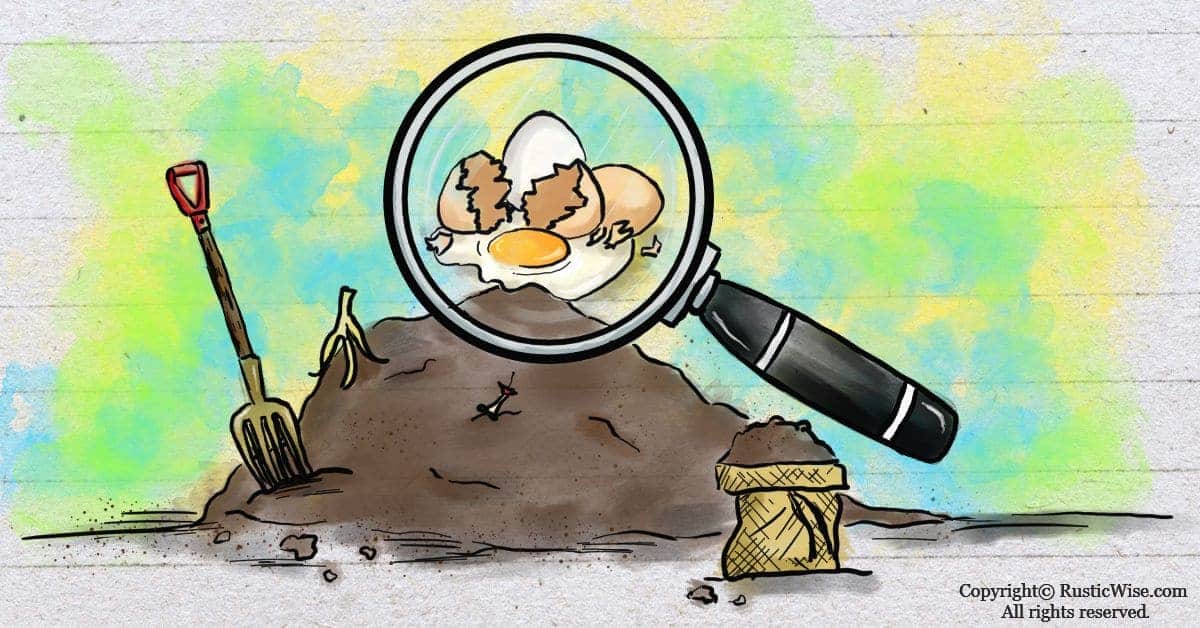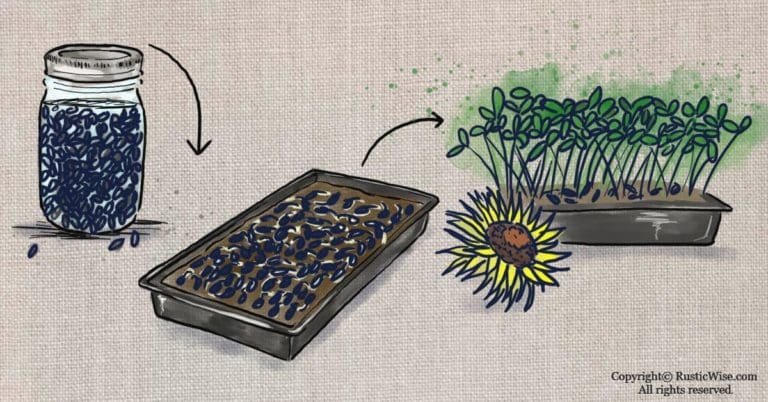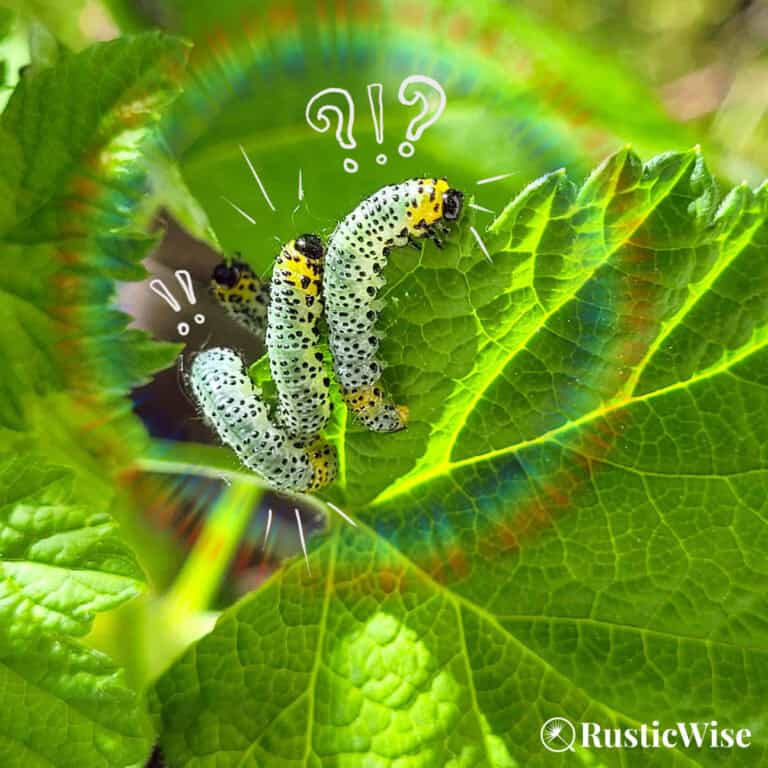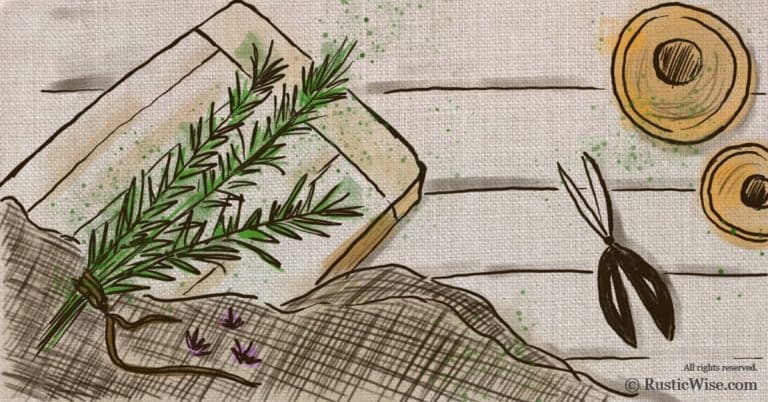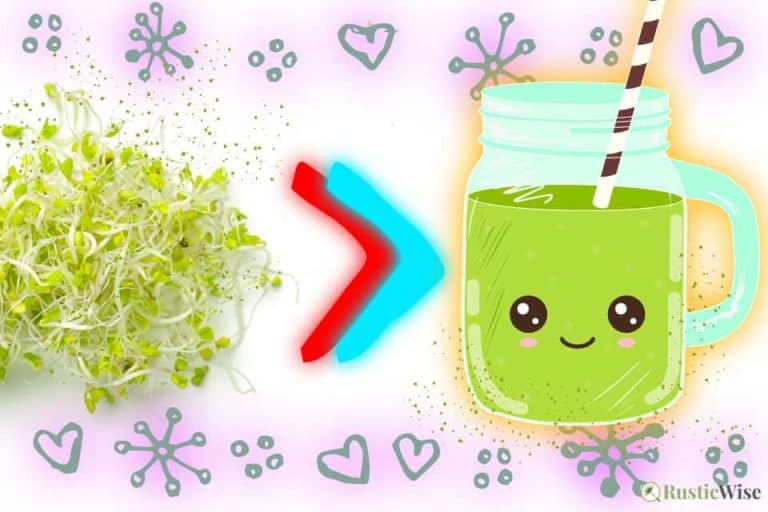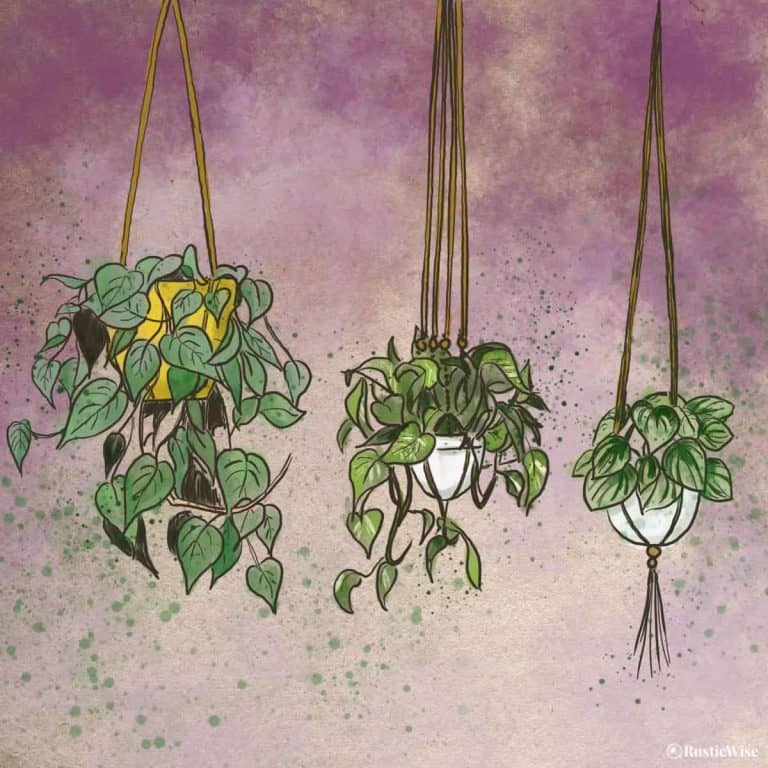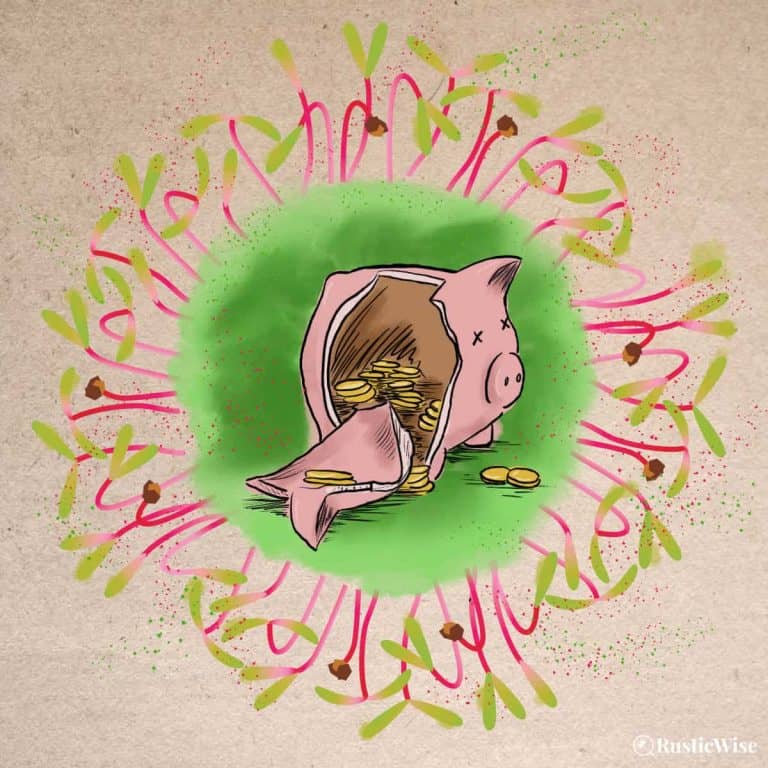Can You Compost Eggs? Yes, Here’s How To Get Crackin’
Can you compost eggs? Eggshells are a valuable source of calcium and magnesium, which are important for healthy soil. So yes, feel free to rinse, dry, and crush eggshells to add to compost. Whole raw or cooked eggs should be avoided in most backyard compost bins, however. Adding these may attract pests, rodents, and well, stink like rotten eggs. There are certain types of compost bins you could add eggs to such as a bokashi bin, or a managed hot compost bin.
We’ll cover everything you need to know about adding eggs and eggshells to your backyard compost or vermicompost. We’ll also go over a few ways you can use eggshells around the garden.
Do I need to worry about salmonella from eggs?
Some people are worried about salmonella bacteria possibly passing from chicken to eggs, and from eggshells to the finished compost.
Can salmonella bacteria harm your finished compost? And, would this compost be okay to use around your vegetable garden?
According to Michigan State University, eggshells are perfectly safe to add to a compost. In fact, they’re great to add as they’re full of calcium and other nutrients which when broken down, enrich your soil.
It’s important to remember that there are many forms of the salmonella bacterium, some of which we are exposed to regularly in the environment.
Farmers help reduce the transfer of salmonella by thoroughly washing eggs before they are packaged. Occasionally salmonella bacteria may be transferred from chicken to egg; we can reduce the chance of getting sick by thoroughly cooking eggs before eating.
As for composting eggshells, most harmful pathogens and weed seeds are killed if you have a hot compost. This typically is between the temperature range of 140–160 degrees Fahrenheit (60–71 degrees Celsius).
Even if your compost doesn’t get this hot, the amount of eggshells in proportion to other composting materials is small, and once compost is finished, it likely has a similar amount of pathogens as regular garden soil, making it safe to use—even in your vegetable garden.
Can you compost eggs? Here’s what you need to know
Most organizations including the U.S. Environmental Protection Agency (EPA) advise you not to compost dairy products including eggs as they may attract pests, rodents, and flies while also causing strong odors. Eggshells, on the other hand are on the “safe” list.
For the average backyard compost pile, adding eggs would be a bad idea. Many backyard home composts are of the “cold” or “slow” variety, meaning compost ingredients are added sporadically and the pile is rarely turned.
In these types of compost piles, any items on the “no-no” list including eggs would take a long time to decompose. While the eggs are breaking down, they would cause quite a smell and attract all sorts of backyard pests.
However, there are a few instances when you could add eggs to a compost:
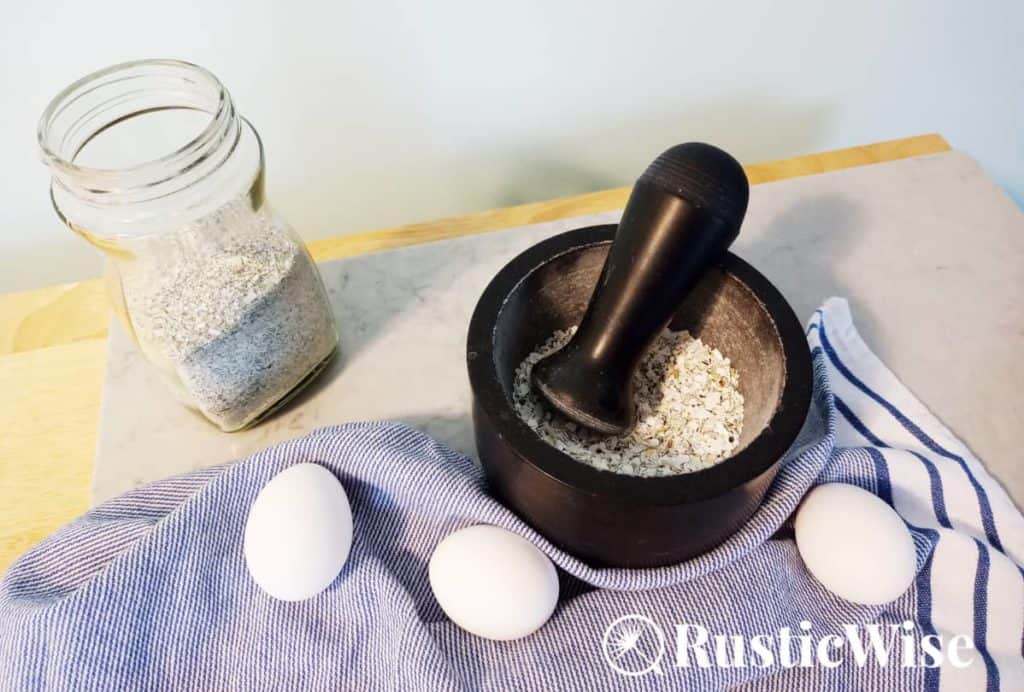
How to compost eggs and eggshells
Eggshells
Yes, you can add eggshells to any compost bin.
Eggshells often make an appearance in “finished” compost as they take a long time to decompose. While a few eggshells here and there aren’t a problem even as you spread the finished compost around the yard, you can help the decomposers in your compost bin by crushing the eggshells into small pieces. The smaller the better!
Here are a few things you can do to help speed up the composting process:
- Rinse eggshells with water: This removes any of the sticky egg whites or yolk.
- Dry: Once you’ve collected a bunch of rinsed eggshells, allow them to air-dry. Or, to speed up the drying time you can microwave on low for a minute or two. You could also place in the oven on low-heat until dry.
- Crush: Use a mortar and pestle to grind up eggshells into small pieces, or better yet—into a fine powder. This allows the shells to decompose more thoroughly so you’re not left with any large chunks in your finished compost.
Raw eggs
While not generally recommended as it may cause a huge stink and attract pests, you could try adding one or two raw eggs if your compost pile is big enough, and has a lid (to keep out pests and keep smells in). The key is to add in moderation!
- Dig a hole in the center of the pile. This is where temperatures are the hottest, and where all the bacteria and microorganisms are actively working.
- Place eggs in hole and break any whole eggs with a stick. You don’t want to dump in whole eggs as they’ll release a sulfuric smell once they crack.
- Bury with a carbon-rich material such as dry leaves, shredded newspapers, or cardboard. This is to balance out the nitrogen-rich properties of eggs and to also help mask any odors.
Cooked eggs
Whether hard-boiled or scrambled, adding cooked eggs is generally a no-no. Cooked eggs may prove to be too tempting for backyard animals. Better to eat your scrambled eggs, or pickle your hard-boiled eggs!
Add to a bokashi compost or your green bin if accepted.
Egg cartons
Yes! Egg cartons are generally made of unbleached cardboard, a perfectly safe compost ingredient.
Egg cartons fall under the “brown” compost ingredient category as it’s rich in carbon, and slow to break down.
To speed up the decomposition process, rip into small pieces and soak with water before adding to your compost.
Tip: With eggs and even eggshells, it’s best to add in small doses. While eggs will cause odor problems, eggshells if added in large quantities will slow down decomposition. So add sparingly, and ensure eggshells are finely ground.
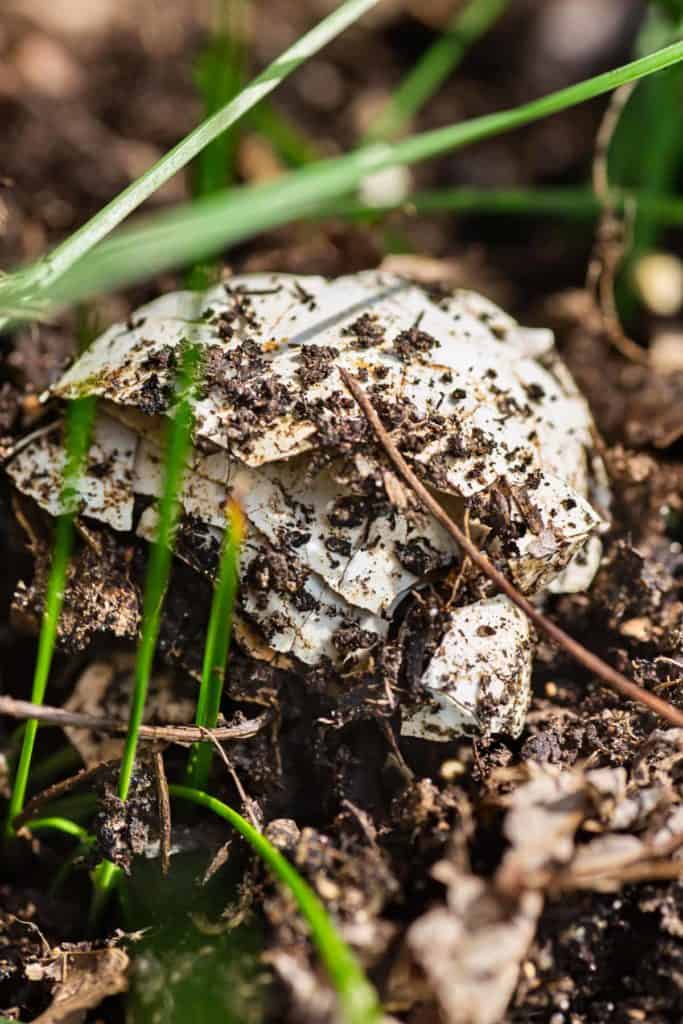
Can you add eggs to a vermicompost?
Generally speaking, meat or animal products, and dairy products should stay out of the worm bin. So, eat your scrambled eggs, or pickle your hard-boiled eggs to preserve them. This is because these types of foods may cause a smelly mess, and may attract all sorts of pests.
What about raw eggs? According to this worm composting website, they added raw eggs to their worm bin to see if their wiggly friends would like it. After about three days the worms began to show some interest. Once they noticed this gelatinous mass, they seemed to love it.
If you want to try out an egg or two, go for it—just don’t blame us if you end up with a slimy smelly mess!
Crushed eggshells on the other hand are actually quite good to feed to your worms periodically. Eggshells help out a vermicompost in a few ways:
- Adds calcium and other minerals.
- Reduces the level of acidity in the bin.
- Provides “grit” to help worm’s digest food. As worms don’t have teeth, eggshells help to break down foods as it passes through the worms.
- May help worms with reproduction to create new baby worms.
Grind up shells into a fine powder before sprinkling around the bin. This helps speed up digestion as worms can’t digest large chunks of food. To do this, rinse eggs and allow to air dry over a few days. Or, you can dry off the shells in the microwave, or oven on low heat.
Tip: Feed no more than roughly 1/2 cup of crushed eggshells per month. So, go easy on those eggshells when adding to your vermicompost.
Other ways to use eggshells in the garden
Besides adding to your compost, eggshells are also useful in your garden and around the yard.
The final word: can you compost eggs?
Yes, you can compost eggs. But it’s generally only recommended if you are using the right composting method such as a bokashi bin or managed hot compost bin. Whole raw or cooked egg should not be added to most backyard compost bins because it could attract pests and rodents, as well as stink like rotten eggs.
If you have been wondering if you are missing out on the benefits of adding eggshells to your own garden’s soil, rest assured that yes, they do provide calcium and magnesium for healthy plants! Start by rinsing off any residue from the shells. Allow eggshells to dry completely before crushing them up into little pieces so they will break down more quickly in whichever type of composter you choose.

References
- Michigan State University, Adding egg shells to compost, https://www.canr.msu.edu/news/adding_eggshells_to_compost. Accessed June 2021.
- U.S. Environmental Protection Agency (EPA), Composting At Home, https://www.epa.gov/recycle/composting-home. Accessed June 2021.
- Worm Composting Help, Raw eggs as worm food, https://www.worm-composting-help.com/raw-eggs-as-worm-food.html. Accessed June 2021.
- Uncle Jim’s Worm Farm, Should Red Wiggler Worms Eat Eggs?, https://unclejimswormfarm.com/eggshells-help-your-worm-composting-bin/. Accessed June 2021.

Author: Josh Tesolin
Josh is co-founder of RusticWise. When he’s not tinkering in the garden, or fixing something around the house, you can find him working on a vast array of random side projects.

